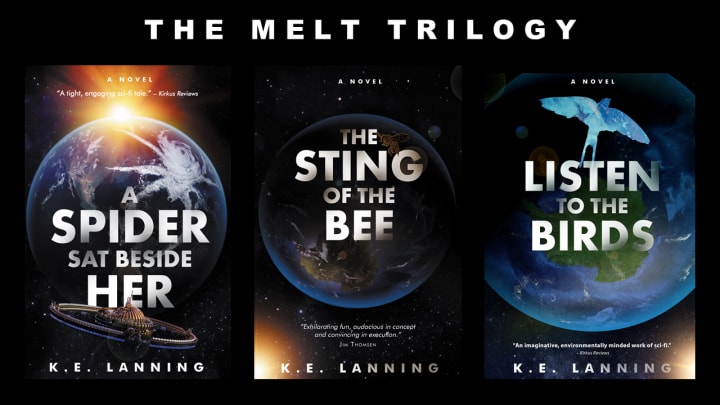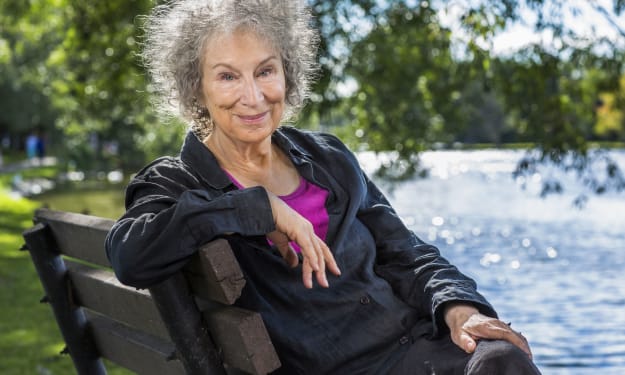Matt Ward: Futurist • Podcaster • Author
What does it mean to be Human?

Matt Ward is man of many talents: an author, entrepreneur, startup advisor and business coach, and a futurist who hosts the Disruptors.FM tech podcast. Ward has a diverse background: a passion for science and technology, coupled with a love of adventure, backpacking through Southeast Asia, South America, and beyond.
As a futurist, founder and blogger, Ward has been featured in Inc., VentureBeat, Lifehacker, GigaOM and multiple other forward-thinking publications and podcasts—delving into the intersection of exponential technologies and ethical issues confronting humanity in the 21st century. He’s built and sold three companies, coached thousands of founders and CEOs through his podcasts FBA ALLSTARS (on all things Amazon ecommerce) and The Syndicate (the ins and outs of startup investing) and come to be recognized as a top thought leaders on the topic of startups, entrepreneurship, Amazon/ecommerce, marketing and futurism.
He’s a top Medium.com top blogger, ranked #25 on Ross Dawson’s most influential futurists rankings, predicted Uber’s struggles years before their unspectacular IPO and his writing has been featured in the likes of Mattermark Daily, Inc, Lifehacker, VentureBeat, The Startup Gigaom and Hackernoon. Matt’s been interviewed on 38+ podcasts, including Conscious Millionaire, Entrepreneur On Fire, the Superhuman Academy podcast and is the author of Gods of the Valley: How Today’s Tech Giants Monopolize the Future.
Inspired by the cutting-edge scientists he interviews on his show, Ward writes fast-paced science fiction, fantasy and speculative fiction technothrillers, with a dystopian bent, exploring the question: What does it mean to be human?
Interview with Futurist Matt Ward by author K.E. Lanning (2-2020)
Matt, thanks for your time today. First off, I’d like to throw you a question that you sometimes ask when you’re interviewing someone: what is the best advice you’ve ever been given?
This is such a hard question, and one that will inevitably not apply to everyone unless taken in a more generic sense. For me personally, it was my parents telling me to follow my dreams and find a job/career I loved, such that, I never “had to” work a day in my life. I think in a lot of ways, this has been a driving force for me: always seeking, always exploring. And I would flip the same around to others. Don’t settle. Find the thing that makes you happy, and do that.
Was there any event in your childhood which you feel changed your life?
My dad’s employer was bought by a heartless corporate, and I learned firsthand the stresses of working for someone else, being forced to relocate, and the problems of big business. Ever since, I’ve strived to be my own boss: podcasting, building and selling business, and as a sci-fi/speculative author.
Do you feel that you are a driven person and what specifically drives you?
HAHA. I’m an overly driven person. I’m self-employed and my boss is a d*ck. I’m driven by an all-consuming desire to be great, to do my best, and accomplish incredible things. It’s a blessing and a curse, and to be honest, very hard at times.
A.I., Virtual Reality, and automation/robotics are technologies rising in our society, but come with a true double-edged sword. Can you discuss what you see going forward with these technologies, both pro and con?
We don’t predict the future, we create it. AI can reduce human suffering, waste, pollution, starvation... or it can take jobs and enslave us in an unaltered hell of cold-blooded capitalism as inequality skyrockets. Virtual reality could create Ready Player One-esque dystopian hellholes where nothing matters as we waste away in cyberspace, or unlock unparalleled human creativity and empathy. Imagine literally walking a mile in my shoes. The possibilities are endless.
It is dangerous to assume any “future” is set in stone. Nothing is. And yet, I see billionaires preparing bunkers as if riots and anarchy were inevitable as automation destroys jobs. It’s my job as a sci-fi author and futurist podcaster to warn against these possible dystopias. We create the world, and the technology. We decide. And EVERY technology is a double-edged sword. So, is the glass half full, or half empty?
When it comes to futuristic technologies, the most important thing to consider is the risk/reward ratio. And ease of access. Imagine a world where every person had the power of a nuke at their fingertips. We wouldn’t last long. It only takes one nutjob. We’re moving towards that world quickly with AI and genetic engineering, one where a single rogue could ruin the world. Here’s my analysis of the biggest existential threats facing mankind, and how we avoid them.
The only way to avoid ruin: thoughtful discussions before powerful technologies “enter the wild.” A commitment to human values and collective action helps too.
Genetic engineering is a controversial technology, with possible good and bad outcomes for humanity. Do you think it is possible to ethically control the future of genetic engineering, especially involving humans, or do you believe it will devolve into a Wild West of patented beings?
No, we will not be able to control genetic engineering—it is inevitable, even with humans. A thought experiment: your child gets a rare form of cancer, but there’s a black-market cure. Laws mean nothing against love. Any parent would run through walls. And, taken to its logical conclusion, that argument applies to education, future prospects, longevity, etc… If Johnny’s getting gene therapy, why shouldn’t Sally? And if it’s illegal in the US, someone’s willing to do it somewhere. That’s value-oriented capitalism. It will probably be Asia.
There are many major problems with the spread of biotechnology. Genetic engineering isn’t democratizing, it’s expensive. At least initially. And if superhuman enhancement is only affordable for the rich, the have/have-not chasm widens. As it does (especially intellectually), the prospect of upper and lower income/level mating decreases. Over several generations, you inevitably create different species of human. Would you date someone whose IQ was 50 points below yours? Of course not. And no one wants a partner who’s slated to die fifty years before they will.
The other serious issue with genetic engineering is unintended consequences, which I explore in my novel, Cynetic Wolf (along with genetic inequality and species splintering). All software has bugs. What happens when high schoolers coding a gene project accidentally unleash chaos. Because that is what programmed life is, chaos. Life is messy, and it spreads. Genetic engineering will spread, and synthetic biology will define the 21st century.
As a futurist, do you see a breakout technology that hasn’t been in the headlines?
Yes, the mind. The human brain is still the MOST complex thing in the universe, and yet, we know so little about it. Neuroscientists researching consciousness and the human condition are doing THE most impactful and important work today in our world of depression, loneliness, and divisive extremism.
What does it mean to be human? That question underlies each of my novels. And it’s the question we all struggle with. Who are we? Why are we here? As psychedelic researchers and quantum computing experts piece together our understanding of ourselves, everything will change. We are our perceptions. Good day, bad day… it’s all in the mind. So, do you want the red pill, or the blue pill?
Within the next 100 years, what do you see as the most likely future of humans?
Unfortunately, inequality. I outlined the basics of the genetics argument above and believe a splintering of the species to be inevitable. Some will ALWAYS look to get ahead. Some will ALWAYS have more means than others. And others (particularly religious conservatives), will almost inevitably be left behind.
Humanity will diverge into multiple species/types in the coming century as experiments with genetic engineering and biohacking, cybernetic enhancement (wearables, embeddables, eventual “cyborgs”), and purists/naturalists become further and further removed.
Just look around. Tattoos, earrings, steroids… Prada, Pumas, perfect Instagram pictures… Everyone wants to be “unique,” yet also fit in. We strive for “the same, but different.” For ideal, but idealistic. As our options increase exponentially, so too will humanity’s paths.
This could lead to many possible futures. In Cynetic Wolf, it leads to dystopian caste systems and war.
What led you to become an author, particularly of YA dystopian science fiction? Was there a specific epiphany you can tell us about?
After selling my previous business and coaching 1000s of entrepreneurs, I had some free time, and decided to pursue my bucket list goal of becoming a published author. I’ve always loved reading, and I found an instant love of writing, of creating a story from nothing and chasing it to its exciting end. From the beginning of Cynetic Wolf, I was hooked.
And why dystopia? Because I’m a futurist and a realist. There are so many threats facing humanity, and our world, and my strength is finding flaws and risks. After interviewing hundreds of the world’s smartest scientists and technologists, it’s impossible not to envision dystopian nightmares. I share these with the world to act guardrails, attempting to steer humanity to a better future by avoiding the accidental evils of technology and innovation.

What authors have influenced you the most?
Michael Crichton - an ability to envision the impossible
Christopher Paolini - a love of fantasy and epics
Peter F Hamilton - an interest in diverging human existence
George RR Martin - a love of political intrigue
JK Rowling - a love of reading, and of connecting with characters
Bio-engineering has been a fascination of science fiction since Mary Shelley’s novel Frankenstein. How do you weave bio/genetic engineering into your sci-fi novels?
I don’t weave it in. It IS the future. There is NO way around that. My writing focuses heavily on what it means to be human in a post-gene-editing world. Stories are human, and humans are changing… I explore these changing dynamics, and bring readers on a whirlwind ride of adventure, dystopia, and technological prowess to shed light on the world we’re racing towards.
What is next on your horizon?
My upcoming novel, Cynetic Wolf, is set in 2096, 60 years after 90% have died from a man-made Bioplague. Humanity has diverged into four unequal subspecies (including half-animal hybrids) under an immortal world government. Chaos reigns.
Grab the 1st five chapters here, free.
And in Death Donor, would you sell your life to save another? Biotech isn’t all good, it drives economic progress, but also inequality. Exploring that sharpest of double-edged sword, synthetic biology, is what fascinates me and my readers. If it fascinates you, join my advance reader team for free copies of my upcoming novels, and to help me craft page-turning speculative thrillers to shape the world toward a better, more equitable future for all at mattwardwrites.com.
Thanks for your time, Matt, and best of luck with the launch of your YA novel, Cynetic Wolf!
K.E. Lanning, author of The Melt Trilogy

About the Creator
K.E. Lanning
Author of commercial literary and speculative fiction. www.kelanning.com, @kelanningauthor, https://www.facebook.com/KELanning1/ https://www.instagram.com/kelanningauthor/






Comments
There are no comments for this story
Be the first to respond and start the conversation.